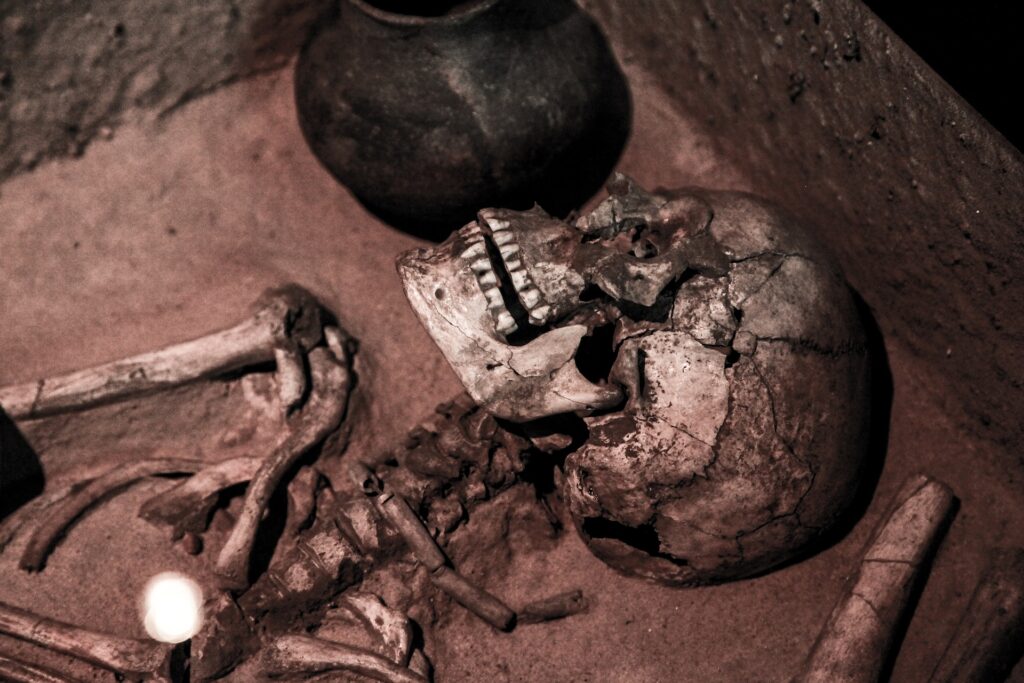
Souls that are Dying (Ezekiel 33:10-11)
One Fourth of July, when I was around 7, Mom and Dad took my brothers and me to the University of Kentucky’s football stadium for a fireworks display. Nannie and Papaw lived about a mile and a half from us, and they normally knew if we were going somewhere, but, for some reason, they didn’t know we had gone to Lexington that evening.
After dark, Nannie noticed an ominous orange glow in the sky in the vicinity of our house. Then Nannie heard a mother screaming at the top of her lungs for her baby boy. Nannie just knew that our house was on fire, and that one of us three boys was trapped. She made a beeline for our home.
Understand that I grew up in a subdivision that dead-ends into a trailer park; on our side of the road, there are only a couple more houses before the mobile home park. A few hundred feet from our house was a mobile home engulfed in flames, and, yes, there was a mother screaming for her trapped boy. Someone in the trailer court had been setting off fireworks and one flew through an open window in that trailer and it was engulfed in a matter of minutes. A little boy burned alive as his mother stood helplessly outside. Every Independence Day, I think about that boy and his mother’s screams.
Each of you thinks about departed friends and loved ones from time to time. Maybe there’s a time of year or a certain smell or a certain song which causes memories to come flooding back. Or maybe there’s a place you pass that causes you a pang of grief. Perhaps you sometimes remember a time in your life when you thought you might leave this world—when a car ran out in front of you or you received a dreaded diagnosis.
Death is a part of this sinful world. But physical death isn’t the most serious threat we face; our greatest threat is spiritual death. John saw that spiritual death, and he said that the evil of this world will have “their portion . . . in the lake that burns with fire and sulfur, which is the second death” (Rev 21:8).
Souls are dying, but every spiritual death is needless. During the Babylonian Captivity, God’s people realized that they were spiritually dead, but God didn’t want them to be dead. This morning, learn: “God does not want souls to die.”
Scripture (Ezekiel 33:10-11)
verse 10:
The Israelites said that their transgressions and their sins were upon them. The Hebrew pictures their sins on top of them, weighing them down; in other words, they felt the full consequences of their sin—they were captives in a foreign land, and their homeland had been destroyed.
The people rotted away because of their sin. The Hebrew indicates a physical rotting away that would eventually lead to death.
verse 11:
The Israelites didn’t need to die; God didn’t want them to die. God does not enjoy punishing people for their sin; he would much rather people turn from their sins and live. Why, then, does God punish people for sin? So that they will turn from their sins and live.
Application
Because “God does not want souls to die,” how should your life be different?
One: Suffer.
The Israelites suffered because of their sins; they said, “Surely our transgressions and our sins are upon us, and we rot away because of them.” They admitted to bearing the consequences of their sin.
To keep from dying, you must Suffer for your sins. God disciplines his people to help rid them of sin: “My son, do not regard lightly the discipline of the Lord, nor be weary when reproved by him. For the Lord disciplines the one he loves, and chastises every son whom he receives” (Heb 12:5-6).
Perhaps you Suffer physically for your sin; you might, in other words, face trials in this life which cause you to abandon sin and lean upon God. You might also Suffer emotionally for your sins; those assembled at Pentecost did: “When they heard [Peter’s preaching] they were cut to the heart” (Acts 2:37).
Do you Suffer because of your sin? Is there a problem in your life this morning where God is discipling you?
Two: Switch.
The Israelites also needed to make a Switch from their sin: “Turn back, turn back from your evil ways, for why will you die, O house of Israel?”
You, too, must Switch your life. Peter told a crowd at Solomon’s portico: “Repent therefore, and turn back, that your sins may be blotted out” (Acts 3:19). “Repent” and “turn back” in Acts 3:19 both mean “repent”—the first Greek term refers to a change in thinking and the second Greek term refers to a change in action. And that’s what a Switch is all about: Changed thinking which leads to changed living.
The Corinthians had made a Switch: 1 Corinthians 6:9-11. The Corinthians had put their sin in their past.
How big a Switch have you made? Are there sins to which you cling? Do you need to make a Switch?
Conclusion
This morning’s text concludes with this rhetorical question: “Why will you die, O house of Israel?” Why will you die? Is your soul dying this morning? Do you need to come to Jesus as we stand and sing?
This sermon was originally preached by Dr. Justin Imel, Sr., at Church of Christ Deer Park in Deer Park, Texas.





